
PFUJ calls for end to Impunity for Crimes Against Journalists
November 02, 2025: PFUJ urges Pakistan’s federal and provincial governments to end Impunity for Crimes Against Journalists and ensure their safety and press freedom.
JournalismPakistan.com | Published 10 years ago
Join our WhatsApp channel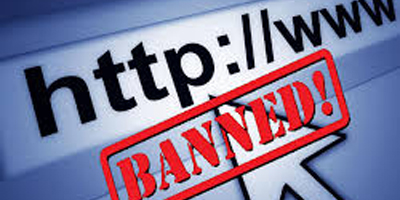
Reporters Without Borders has condemned the Indian government’s indiscriminate disconnection of the Internet throughout the entire far-north state of Jammu and Kashmir from 25 to 28 September on the grounds of preventing any exacerbation of tension between the state’s Muslim and Hindu communities.
The suspension of 2G, 3G, GPRS and broadband Internet services in Jammu and Kashmir, which borders China and Pakistan, lasted 82 hours, paralyzing the work of journalists and media outlets, especially online media, and depriving the population of access to online information and communication.
The ban was imposed at the start of Eid al-Adha, a festival during which Muslims traditionally sacrifice cows, an animal revered by Hindus. A recent court order enforcing a ban on the slaughtering of cows and the sale of beef has revived communal tension in the state.
“It is unacceptable that a government is able to take arbitrary decisions affecting access to information and the sharing of information throughout an entire region,” said Benjamin Ismaïl, the head of the Reporters Without Borders Asia-Pacific desk.
“By gagging journalists and Internet users, who relay information about developments in the region and comment on them, the authorities are just increasing frustration and fuelling street violence.”
No information for three days
The local newspaper Rising Kashmir was unable to keep updating its website as it normally does during Eid al-Adha. Op-ed editor Daanish Bin Nabi said readers were angered by the site’s unavailability during the three-day ban, which had a big impact on traffic to the newspaper’s Twitter and Facebook pages as well as the main website.
Kashmir Monitor online editor Mubashir Bukhari said the Internet ban had undermined the English-language daily’s attractiveness, especially to readers based abroad. “Caging” the Internet in today’s digital world was completely inappropriate, he said.
“I hope that in future the government will understand the nuisance of banning the Internet and will think twice before sending us back to the Stone Age,” Bukhari told Reporters Without Borders.
Press TV correspondent and producer Syed Ali Safvi said this was not the first time the authorities had suspended Internet services in Kashmir. Describing the ban as “both irrational and unconstitutional,” he said the authorities saw it as a solution when in fact it just aggravated tension.
The Internet ban overlapped with an official visit to the United States by Indian Prime Minister Narendra Modi from 26 to 30 September, when he toured Silicon Valley and presented his “Digital India” project to some of the world’s biggest technology companies.
A social network fan, he kept tweeting throughout the trip and reaffirmed his support for new technologies after meeting the leaders of Facebook, Google and Microsoft.
“On the one hand, Prime Minister Modi talks about digital India and on the other hand the Indian government virtually sends Kashmir back into Stone Age by imposing a ban on Internet services,” Safvi said.
India has continued to see a significant number of violations of freedom of information in 2015, especially in Kashmir. In April, the Indian government banned Al-Jazeera TV from broadcasting for five days for displaying a map in which India’s border with Pakistan in Kashmir did not correspond to its territorial claims.
Journalists are also exposed to the possibility of often deadly violence from all quarters, especially when they cover corruption, local politics or crime.
India is ranked 136th out of 180 countries in the 2015 Reporters Without Borders press freedom index. - Press Release

November 02, 2025: PFUJ urges Pakistan’s federal and provincial governments to end Impunity for Crimes Against Journalists and ensure their safety and press freedom.

November 02, 2025: Impunity for crimes against journalists deepens worldwide as Pakistan reports a 60 percent surge in attacks and weak enforcement of safety laws.

November 01, 2025: Pakistan Press Foundation reports 137 attacks on journalists in 2025, highlighting rising threats, legal harassment, and censorship on the International Day to End Impunity.
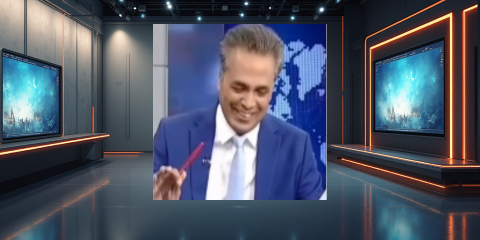
November 01, 2025: A viral Samaa TV clip featuring MNA Sher Afzal Marwat’s crude remarks and Talat Hussain’s laughter raises questions about the declining ethics of Pakistani television.

October 31, 2025: Police foiled a plot to kill DawnNewsTV journalist Tahir Naseer in Rawalpindi after arresting suspects hired for Rs200,000. Naseer says threats followed his reporting.
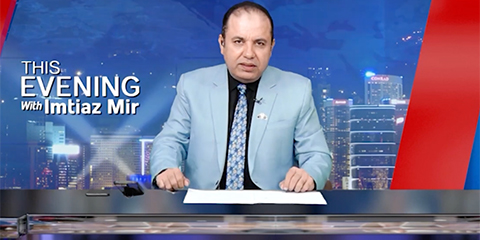
October 31, 2025: CPJ calls on Pakistan to bring Imtiaz Mir’s killers to justice after the journalist was allegedly murdered by a banned militant group in Karachi.

October 30, 2025: The PFUJ has condemned a fabricated drug case against journalist Matiullah Jan, calling it an attempt to silence him and urging authorities to quash the charges immediately.

October 30, 2025: NewsOne TV remains on air but faces mass layoffs and delayed salaries, exposing Pakistan’s worsening media crisis and financial instability.

November 02, 2025 Independent outlet All About Macau to halt print and online operations amid rising pressure, financial strain, and legal threats, sparking press freedom concerns in the city.
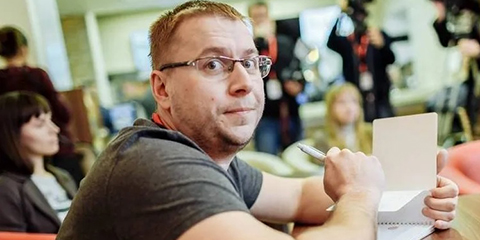
November 01, 2025 Belarus court jails journalist Siarhei Chabotska for extremism and defaming the president, highlighting Minsk’s ongoing crackdown on press freedom.
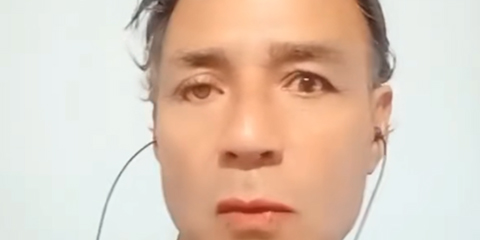
November 01, 2025 Mexican journalist Miguel Angel Beltran was found murdered in Durango. CPJ urges authorities to ensure justice amid rising violence against journalists in Mexico.

November 01, 2025 UNESCO survey finds one-third of media lawyers cannot effectively defend journalists due to threats, limited resources, and lack of specialization.

October 31, 2025 Radio Free Asia, a US government-funded broadcaster covering tightly controlled Asian media environments, has suspended all news operations after federal funding dried up.